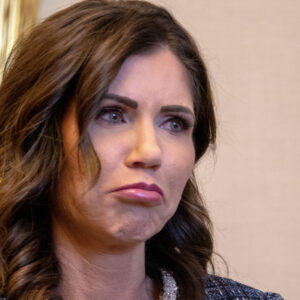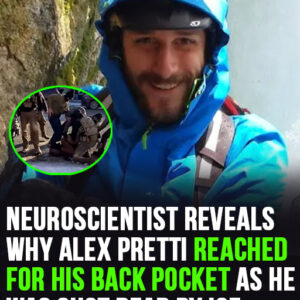My dad always told me that real strength is protecting people weaker than you. He said it while braiding my hair before school or teaching me how to change the oil in his Harley-Davidson. Funny thing is, most people in Cedar Lane were terrified of him.
Dad was the president of the Iron Eagles, our town’s biker club. He was six-foot-three, covered in tattoos, and had a voice like gravel. Strangers crossed the street when they saw him coming. But to me, he was pancakes shaped like butterflies, bedtime stories in silly voices, and the safest hug in the world.
Three years ago, a drunk driver took him from us. Mom was seven months pregnant with my baby brother when the call came. I’ll never forget the sound of her scream echoing through our kitchen. After the funeral, Dad’s biker brothers helped a little, but soon it was just us—Mom, me, my little sister, and eventually the baby. We survived on thrift stores, pasta dinners, and grit.
This summer, the struggle shifted. My classmate Ethan came to school with red, swollen eyes. At lunch, he whispered the truth:
“My mom has cancer. Stage three. They say she needs treatment right away, but… we can’t afford it.”
I knew that look. The same one I’d seen in my mirror after Dad died. My chest tightened. Ethan’s mom needed help. He needed help. And Dad’s words rang in my head: Protect people weaker than you.
The next morning, I had a plan. My grandma had taught me how to crochet when I was ten, and I’d been making toys ever since—cats with button eyes, bunnies with floppy ears, tiny dinosaurs that made kids giggle. They were cute, quirky, and people always loved them at craft fairs. So, I set up a folding table downtown with a cardboard sign:
“Handmade Toys – All Money for Ethan’s Mom’s Cancer Treatment.”
The first week nearly broke me. Summer heat scorched my skin, my hands cramped, and too many people walked by like I didn’t exist. Some stopped, looked, and left without buying. One woman sneered, “These are too expensive for what they are. Five dollars for this?” Another accused me of profiting from grief. I wanted to sink into the pavement. But then I thought of Ethan’s mom lying in that hospital bed, and I stayed.
After two weeks, I’d scraped together just $37. Ethan needed thousands. I cried that night, but I wasn’t ready to quit.
Then everything changed.
One afternoon, as I packed up, a shiny black BMW rolled up to the curb, bass thumping. Out swaggered Caleb, a senior from my school. He was rich, cocky, and always posting Instagram photos of yachts and designer sneakers. Three friends trailed behind him, all smirking.
“Well, well. What do we have here?” Caleb said, eyeing my setup.
“I’m raising money for my friend’s mom. She has cancer,” I said, trying to sound braver than I felt.
He picked up one of my crocheted cats. “These are pretty good. You make them?”
“Yes. Every one.”
Then he pulled a thick wad of cash from his pocket and tossed it on my table. “Here, princess. Don’t spend it all in one place.” His friends howled with laughter as he grabbed every toy, shoved them in a bag, and sped off.
I stood frozen, staring at the money. There had to be hundreds. Heart racing, I ran home, clutching the bills like treasure.
“Mom! We did it!” I shouted, bursting through the door.
She smiled when she saw the pile of cash—until she picked one up, held it to the light, and went pale.
“Miley,” she said gently. “These are fake.”
My stomach dropped. I snatched the bills back, and now I saw it—the paper too smooth, the ink too flat. I had been played.
“No,” I whispered, my throat closing. “No, no, no…”
I collapsed on the floor, sobbing until I could barely breathe. “Why would he do that? Why?”
Mom rubbed my back, but there was no answer. That night, I cried myself to sleep, certain I’d failed Ethan’s family.
The next morning, I woke to a sound that shook the walls—engines. Not one, not two, but dozens, roaring in unison. I ran to the window and gasped.
Thirty motorcycles lined our street, chrome gleaming in the sun, vests patched with the Iron Eagles emblem. My dad’s club. At the front sat Big Joe, Dad’s best friend, broad as a mountain and tattooed from wrist to neck.
He cupped his hands and bellowed up to my window, “Where’s my girl? We heard what happened!”
I bolted outside barefoot. Big Joe swung off his Harley and crushed me in a hug that smelled like leather and gasoline.
“That punk kid gave you fake bills?” he growled.
I nodded.
“Not on our watch. Come on, kid. You’re riding with us.”
Minutes later, I was on the back of his bike as thirty engines roared through town. People stopped and stared. Cars pulled over. For the first time in years, I felt powerful again—like Dad was right there with me.
We pulled into Caleb’s driveway, a manicured colonial palace. Thirty Harleys idling on his lawn sounded like thunder. Caleb stepped onto the porch, his face draining of color. His dad followed, looking confused.
Big Joe stomped up the steps. “Your boy thought it’d be funny to give counterfeit money to a kid raising funds for cancer treatment. We don’t think it’s funny.”
Caleb shrugged, trying to act tough. “It was just a joke.”
His dad’s face turned red. He grabbed Caleb by the shirt. “A joke? You’re working at your grandfather’s factory all summer. Every dime goes to her fundraiser. Forget your vacation.”
The bikers rumbled their approval, then turned back to me. Big Joe winked. “But we’re not done.”
That weekend, the Iron Eagles hosted a rally by Silver Creek: Ride for Hope. Hundreds of bikers came. Families lined up for rides, kids posed on gleaming motorcycles, local bands played, and food trucks fed the crowd. Tough bikers turned into marshmallows around children, teaching them how to rev engines and giving piggyback rides.
Donation buckets overflowed. By sundown, we’d raised three times what Ethan’s mom needed. I handed the money to her myself. She hugged me so tightly I thought my ribs would crack. “You saved my life,” she whispered.
Weeks later, Caleb showed up at my door. No designer clothes, no smirk. Just work boots, a faded shirt, and calloused hands. He held out an envelope. “I worked all summer. I want to make it right.”
I shook my head. “Don’t give it to me. Take it to Ethan’s mom. Look her in the eyes when you do.”
He did. And something changed in him. He started volunteering at fundraisers, even organizing his own charity drive at school.
Ethan’s mom pulled through treatment. She’s in remission now, back teaching third grade. Ethan smiles again.
As for me, I still crochet. I still set up my table, raising money for other causes. And whenever I see someone drop a dollar into my jar, I remember that kindness always outlasts cruelty.
Dad was right. Real strength is protecting people weaker than you. That summer, I learned I wasn’t alone in carrying his lesson forward. His brothers were still watching out for me. And together, we proved that community can turn even heartbreak into hope.


